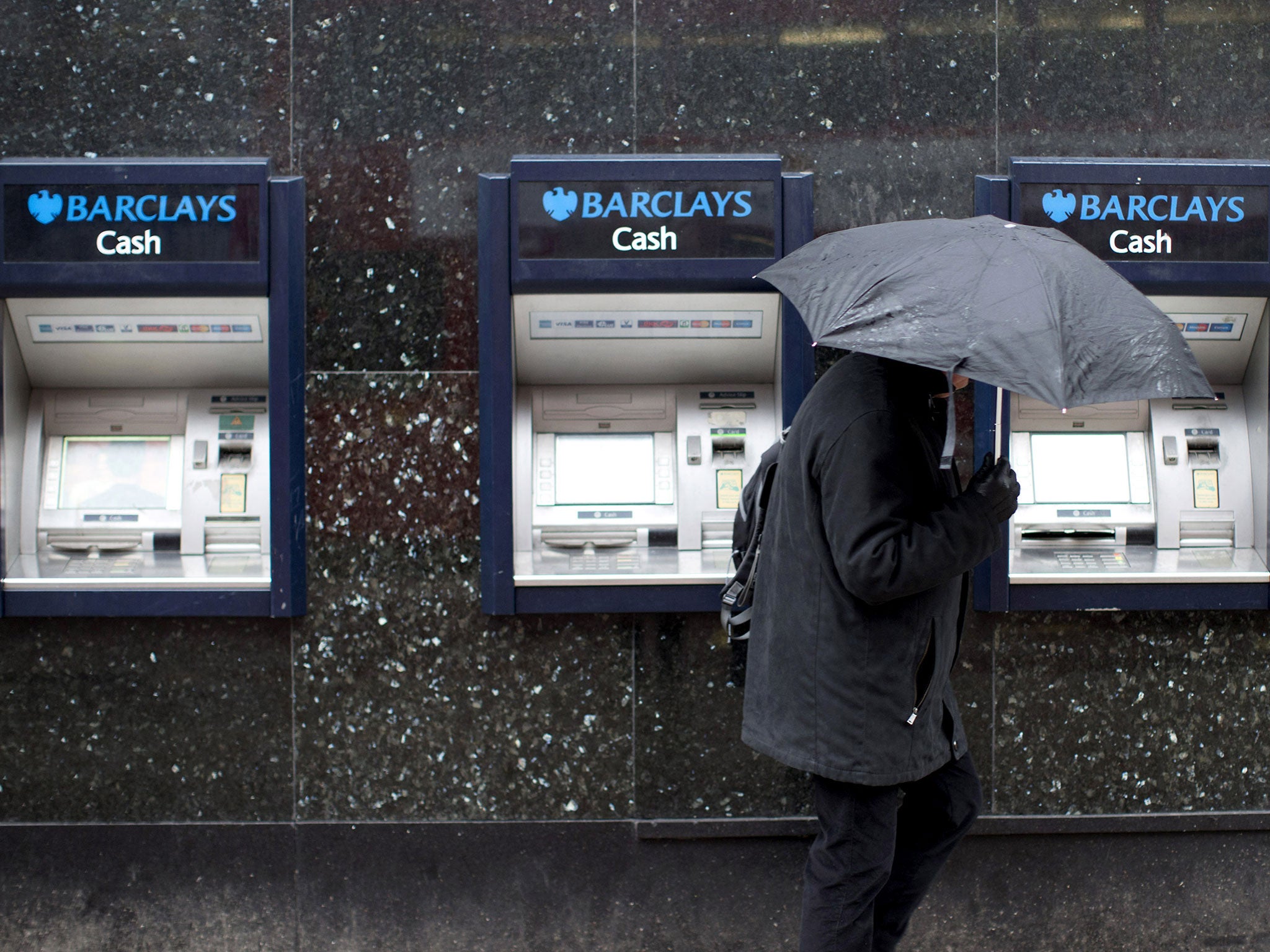Barclays profits flat but cost of overhaul casts a darker cloud
The lower returns and higher costs put the spotlight firmly on incoming chief executive Jes Staley, who has been brought across from Wall Street to speed up the rate of change at the bank

An extra £1bn in costs to ring-fence its high street branches, and a cut in its profitability targets to reflect the new higher bank tax, sent Barclays shares tumbling 6 per cent.
The bank narrowly missed City forecasts for its third quarter with headline profits before tax virtually flat at £1.76bn – but it was the future guidance that damaged its shares.
The lower returns and higher costs put the spotlight firmly on incoming chief executive Jes Staley, who has been brought across from Wall Street to speed up the rate of change at the bank.
Barclays said ring-fencing – separating domestic retail and corporate banking from riskier investment banking – would now cost it £1bn: £100m this year, £400m in 2016 and £500m in 2017.
It also cut its target for return on equity – a measure of profitability – from 12 per cent to 11 per cent, blaming the 8 per cent tax surcharge on UK banks in George Osborne’s summer Budget’s and the extra costs of ring-fencing.
The finance director Tushar Morzaria said Barclays is still negotiating how it will construct the ring-fence with regulators and so would not talk about what shape this might take. There have been reports that Barclays could be looking at having its domestic bank owned by the investment arm.
Headline profits for the last three months were just 1 per cent higher at £1.76bn, while for the nine months they were up 4 per cent at £5.2bn.
There were record quarterly profits from Barclaycard and retail and business banking, but profits from Africa dropped because of the weaker rand and investment bank profits were lower than in the previous two quarters.
“Third-quarter profits are always lower in investment banks, as we have seen with our rivals. But ours were up on a year earlier,” Mr Morzaria said.
“However, October has got off to a slower start than usual – although the noises from the Fed [hinting at a rise in US interest rates] may stimulate things.”
He added that he expects his new boss, with whom he worked at JP Morgan, to pursue the “capital-lite” model of investment banking that he outlined in his memo to staff earlier this week.
Barclays also reported a £290m charge for compensating customers whom it had decided were mis-sold foreign exchange products as a result of its own traders rigging forex rates. Mr Morzaria would not be specific about who these clients might be, or whether there could be further provisions. However, he did say that these charges did not relate to the series of class actions being taken against various banks in the UK and US over the forex scandal.
“We didn’t apply the most appropriate foreign exchange rate and are looking to make that good,” he said.
“We believe the provision we’ve taken to be prudent and sufficient to work through all the issues that we’ve identified, but of course that work’s ongoing.”
Gary Greenwood – an analyst at Shore Capital who rates Barclays shares, down 15.9p at 237.25p, as a hold – said: “We are somewhat unnerved by the extent of extra restructuring charges and will need to take these into consideration before reaching a firm conclusion on valuation.”
Subscribe to Independent Premium to bookmark this article
Want to bookmark your favourite articles and stories to read or reference later? Start your Independent Premium subscription today.

Join our commenting forum
Join thought-provoking conversations, follow other Independent readers and see their replies